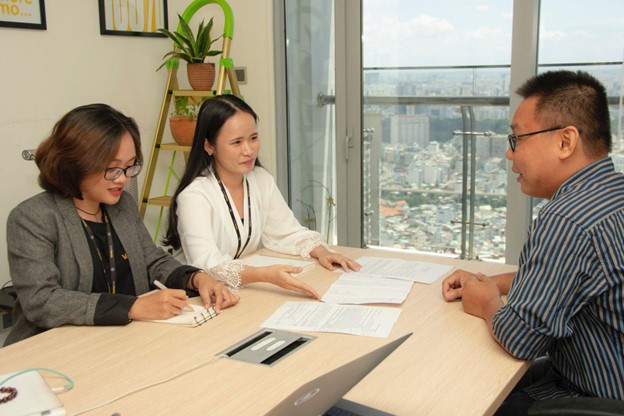Key Takeaways:
- Mandatory benefits: Includes SSRS, PhilHealth, Pag-IBIG, and 13th-month pay per law
- Common employer perks: Health insurance, meal allowances, transportation, and wellness programs
- Competitive edge: Enhanced benefits help attract and retain top local talent
- Compliance essential: Employers must comply with statutory payroll and reporting obligations
- Flexible options: Employers may offer tiered benefits—added perks for senior or long-term staff
Employees in the Philippines are ensured of guaranteed employee benefits as stipulated in the Labor Code. Knowing the laws that govern employee benefits packages is an essential step for any business owner or investor to know and eventually comply with.
There are plenty of provisions to get to know, so let’s start.
The different types of benefits that Filipino employees can enjoy

1. State insurance funds
Under the law, all Filipino employers and their employees under the age of 60 are required to become members of and make monthly contributions (which shall be taken from the employee’s monthly salaries) to government agencies that facilitate social insurance programs. These programs help its members avail benefits that they could use for their medical needs, house financing, and retirement.
In fact, the Philippine Labor Code states that,
Art. 166. Policy.
“The State shall promote and develop a tax-exempt employees’ compensation program whereby employees and their dependents, in the event of work-connected disability or death, may promptly secure adequate income benefit and medical related benefits.”
Art. 168. Compulsory coverage.
“Coverage in the State Insurance Fund shall be compulsory upon all employers and their employees not over sixty (60) years of age: Provided, That an employee who is over (60) years of age and paying contributions to qualify for the retirement or life insurance benefit administered by the System shall be subject to compulsory coverage.”
The government agencies in charge of managing the funds are as follows:
Philhealth
The Philippine Health Insurance Corporation or more commonly known as Philhealth is the government agency in charge of the country’s health insurance program. Members are expected to pay a monthly contribution with the premium based on their monthly salary and job classification. Employed members and their employers are required to share the payment for the monthly premium, except for those employed as household help, in which their employer would have sole responsibility for paying their premium. Likewise, land-based overseas Filipino workers, self-employed members, and even foreigners each have their own rules regarding their responsibilities as Philhealth members.
As of June 2022, Philhealth imposes a 4% premium rate (based on the contributor’s salary) for its members.
Pag-IBIG Fund
Operating under the Department of Human Settlements and Urban Development, the Pag-IBIG Fund is responsible for the national savings program that focuses on providing Filipinos with affordable house financing. Beneficiaries can become homeowners by availing of the program’s easy-payment plans. Just like with Philhealth, both the employer and the employee shall equally share responsibilities for paying the monthly premium. For reference, the monthly computation is shown below.
| Monthly Compensation | Contribution Rate |
| Employee | Employer (If Any) | |
| Php1,500 and below | 1.0% | 2.0% |
| Over Php1,500 | 2.0% | 2.0% |
Source:
(“HDMF Circular No. 274 | REVISED GUIDELINES ON Pag-IBIG FUND MEMBERSHIP ”)
SSS/GSIS
There are two social insurance programs that exist in the Philippines. The Social Security System or SSS is a program that caters to private employees. Its counterpart, the Government Service Insurance System or GSIS, serves government employees and those in the armed forces.
Both programs ensure that their members can avail themselves of financial help to be used for various needs such as salary and housing loans, healthcare coverage, and disability and death benefits. Upon retirement, members would also start receiving their pensions from these agencies.
Just like the previous insurance programs, monthly contributions are shared between the employer and the employee (to be deducted from their salary). You can view the prevailing rates for member contributions here.

2. Wage benefits
Minimum Wage
The Philippine Labor Code has set wage standards across the different regions that employers are obliged to follow. You can find the prevailing rates (accurate as of September 2002) in this table from the National Wages and Productivity Commission.
13th Month Pay
All rank-and-file workers who provided at least one month of service are qualified for a 13th-month bonus pay, as per the 13th Month Pay Law. The payment is due on or before December 24 and is equal to the employee’s monthly salary. However, some businesses give their employees half of their bonuses before the start of a new school year (around August or September), and others even go above the legally required bonus by paying out 14th and 15th-month bonuses.
Overtime Pay
An employee earns an extra 25% of their hourly pay for every hour they render work past their regular working hours.
Night-Shift Differential Pay
Employees who work between 10:00 p.m. to 6 a.m. qualify for a night-shift differential pay that provides a 10% bonus for each hour worked. However, for government employees, the bonus rate is at 20%.
Regular Holiday Pay
If a worker works on a regular holiday, they will be entitled to receive a holiday pay which is 100% of their daily rate. If not, the employee will still receive their holiday pay if they decide to take the time off.
The following are designated by the national government as Regular Holidays:
- New Year’s Day – January 1
- Araw ng Kagitingan/Day of Valor – April 9
- Maundy Thursday (movable date)
- Good Friday (movable date)
- Labor Day – May 1
- Eid’l Fitr/Feast of Ramadhan (movable date)
- Independence Day – June 12
- Eid’l Adha/Feast of Sacrifice (movable date)
- National Heroes Day – August 29
- Bonifacio Day – November 30
- Christmas Day – December 25
- Rizal Day – December 30
Special Non-Working Day Pay
Special Non-Working Days, also known as Special Holidays, are holidays that the president, a local government unit (LGU) in a particular area, or Congress designates as such.
Officially, these are the national Special Holidays:
- Chinese New Year – (movable date)
- EDSA People Power Revolution Anniversary – February 25
- Black Saturday (movable date)
- National and Local Elections (movable date)
- Ninoy Aquino Day – August 21
- All Saints’ Day – November 1
- Feast of the Immaculate Conception of Mary – December 8
An employee who works during a Special Holiday will earn a bonus of at least 30% to their daily rate. If it also falls on their rest day, then the bonus would be at least 50%.
Bonuses
Bonuses are a reward for good performance and may be in the form of cash, stock options or other incentives. However, bonuses are not guaranteed and may be subject to change. They are not required by law, but many companies offer them as part of their employee benefits packages to attract and retain talent.

3. Leave benefits
Philippine laws also ensure that employees are able to spend time off for their health and well-being. As such, they can enjoy these paid leaves upon meeting certain requirements.
Service Incentive Leave
One employee benefit is the Service Incentive Leave. An employee who has worked for the same company for a year is entitled to five service incentive leaves, which can be taken as either paid vacation or sick leave. However, many businesses provide 15 paid sick leaves and 15 paid vacation leaves. Mostly If these leaves aren’t used, some companies have provisions where they can be converted to money, which is often handed out at the end of the year.
Maternity Leave
Another employee benefit is the Maternity Leave. Any pregnant employee in the private sector, no matter their marital status, and who has paid at least three months to the Social Security System for at least a year prior to giving birth is eligible for this paid leave benefit. The expecting mother is entitled to a 105-day maternity leave with pay that is equal to 100% of her salary credit after giving notice to her employer.
Paternity Leave
Fathers have a Paternity Leave employee benefit. Fathers, on the other hand, are entitled to seven days of paid leave following the birth of their child. He can only take advantage of this, though, if he is married and living with the mother. Additionally, this incentive is available for up to four deliveries including miscarriages.
Parental Leave for Solo Parents
After one year of service, single parents become eligible for seven days of fully paid leave.
Paid Leave for Victims of Violence Against Women and Their Children
Women employees who meet the requirements of Republic Act No. 9262 are entitled to 10 days of paid leave under this provision. This may be extended based on the protection order approved by the court or the village chief (barangay captain) where she resides.
Special Leave for Women Who Have Undergone Surgery for Gynecological Disorders/The Magna Carta of Women Act
All female employees, regardless of marital status or age, and who have completed at least six months of continuous aggregate employment are entitled to a two-month paid leave following surgery for gynecological problems.

4. Other benefits that are not required by law but may be given by certain companies.
Beyond these standard employee benefits packages, certain companies may give other benefits to attract and retain more talents. These includes the enrollment of their employees in a private HMO program which provides generous subsidies for health exams and procedures. It must be noted that this does not cancel out the benefits of the state-supported Philhealth program as most, if not all, HMO providers will require Philhealth membership to facilitate the issuance of premiums. Some companies would even extend the coverage to the immediate family members of their employees.
In fact, these benefits that support the health and wellness of Philippine employees were especially felt during the COVID-19 pandemic. Many companies, with the assistance of local government units, have extended their support to their employees by organizing vaccination drives, periodic COVID-19 testing, as well as the establishment of workplace COVID-19 bubbles to help curb the spread of the virus.
Additionally, some companies would also enroll their employees in a group insurance plan from a privately insurance provider upon hiring or after regularization. At the same time, there are some who offer perks and benefits that ensure the health and well-being of their employees are at their best, namely, free meals at the office, gym memberships, company rides that take them to and from the offices, etc.
Finally, other companies also offer professional development assistance in the form of tuition subsidies to their employees who want to pursue further studies.
Conclusion
The Philippines is a great place to work and live. The workforce is educated, the economy is growing, and there are many opportunities for business growth. In addition to offering competitive salaries and benefits packages, some companies in the Philippines consider non-monetary benefits such as career development opportunities for their employees. Indeed, it is a country worth investing in.









